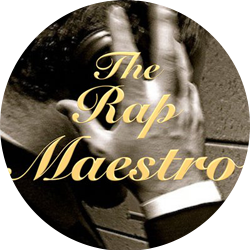As you can probably tell by now, I really like big projects. Like, HUGE, titanic, herculean and gargantuan efforts. The bigger, the better. Size matters. Write a 9-movement, 35-minute funeral mass set to music during 2 and a half years, once re-starting it from nothing, that memorializes victims of the 2010 earthquake in Haiti? Sure, why not!
This book I’m writing for you guys is just like it. It might have seemed hard enough in the first place: write 120,000 words on rap that people will be willing to pay money for. Well, I just upped the difficulty level, because I’ve recently started making edits to the book.
And when I say “making edits,” I pretty much mean “re-writing the whole damn thing in two months.” After getting the feedback from my editor a few weeks ago, I just sat down to start revising my book. The first thing I did was throw out all of the 500 pages I had written specifically, while keeping the general topics the same. Then, on the advice of my editor, I have come up 10 chapters with 10 attributes, not the previous 5. Instead of historical consciousness, versatility, originality, manipulation of expectation, and technical proficiency, these are the musical attributes below that I’ll be arguing that the very best rappers possess.
A good rapper should be:
1. Historically Conscious (which we see best in the work of Mos Def)
2. Versatile (Pharoahe Monch)
3. Visionary (Kendrick Lamar)
4. Original (MF DOOM)
5. Melodic (Busta Rhymes)
6. Commanding (Game)
7. Eclectic (André 3000)
8. Technically Proficient (Eminem)
9. Deep (Lil Wayne…yes, that Lil Wayne.)
10. Purposeful (Talib Kweli.)
In addition to re-working the number of attributes, I’ve also, as you can see in the above, simplified the number of rappers I mention. In the first draft, I discussed no less than 39 rappers; my awesome editor suggested reducing it to just 1 per chapter, and those rappers in the above are the ones who I’ll be talking about in the chapter, because I think best represent that essential musical characteristic. So start learnin’ up ya bums!
Oher changes: I’ve also simplified the difficulty of the language I used, made my argument more specific and less encyclopedic, addressed it to an audience more on the side of general rap fans than academic scholars, and, quite simply, used less words, shortening the book from about 100,000 words to about 65,000 words. The result is a 100% improvement, and I hope you’ll agree.

